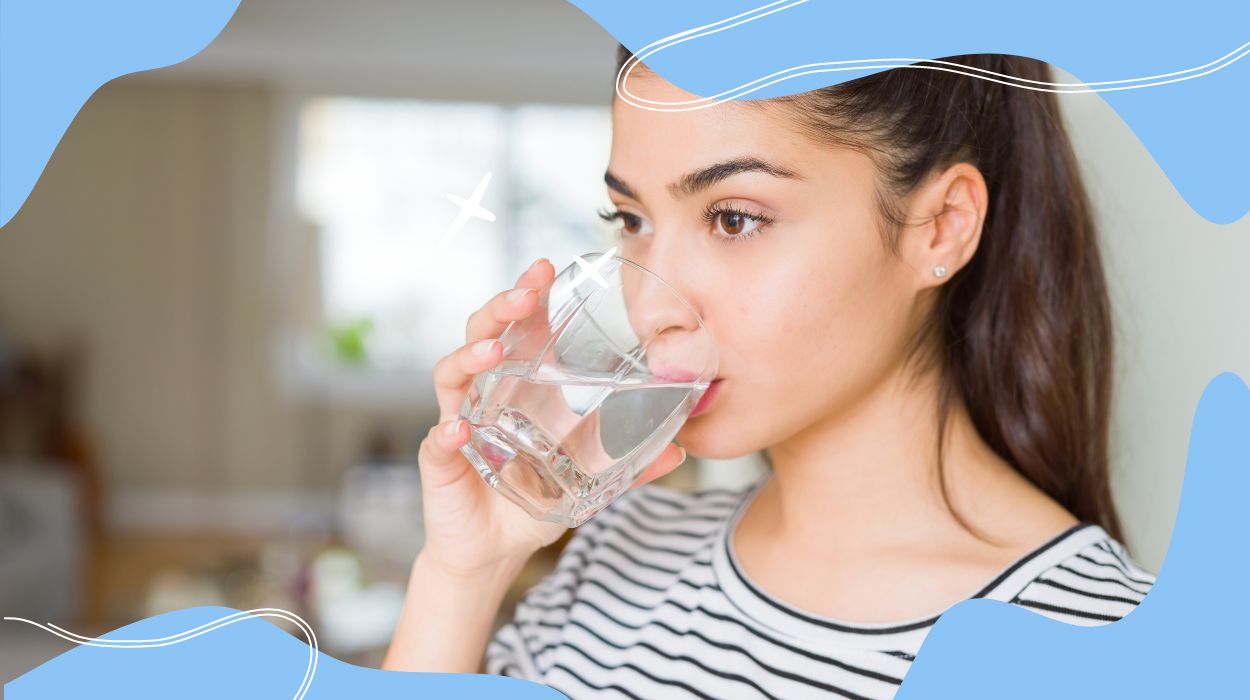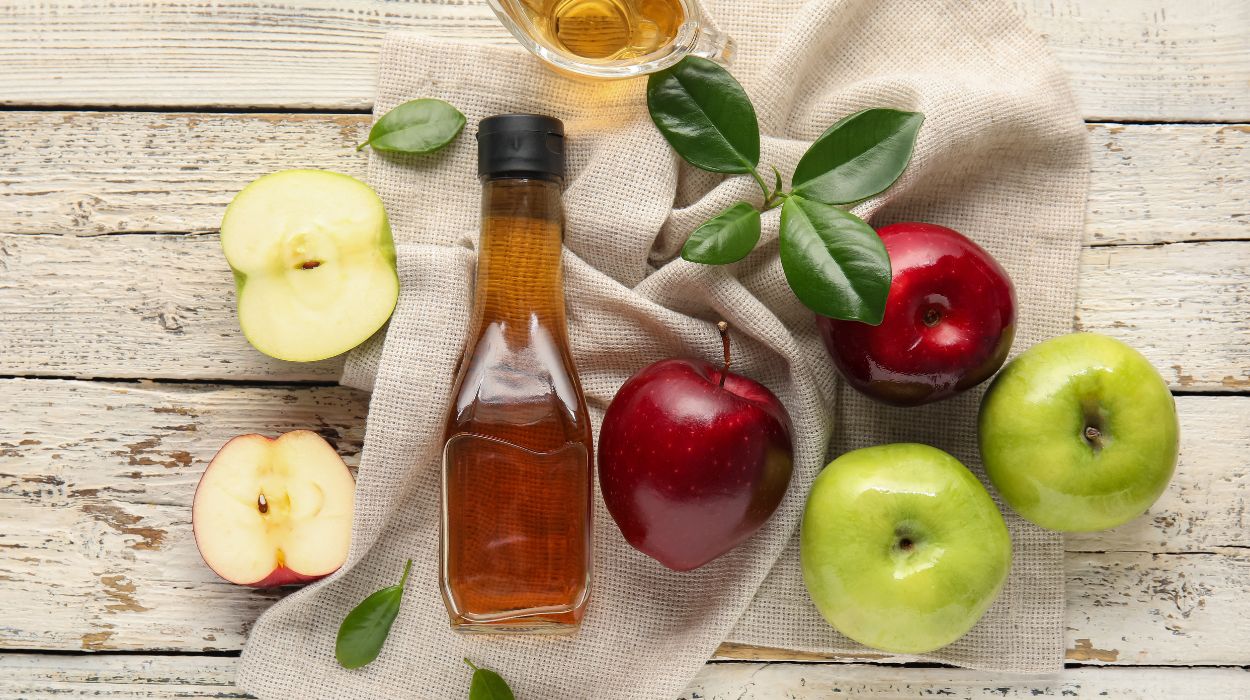 Expert's opinion
Expert's opinion
Expert's opinion
The article is a subjective view on this topic written by writers specializing in medical writing.
It may reflect on a personal journey surrounding struggles with an illness or medical condition, involve product comparisons, diet considerations, or other health-related opinions.
Although the view is entirely that of the writer, it is based on academic experiences and scientific research they have conducted; it is fact-checked by a team of degreed medical experts, and validated by sources attached to the article.
The numbers in parenthesis (1,2,3) will take you to clickable links to related scientific papers.
Can You Drink Water While Intermittent Fasting In 2024?

The human body can survive longer without food than without water. This is because water is needed to help keep all cells alive, regulate body temperature, and perform other vital bodily functions. Without water, cells quickly die, leading to organ failure and death in just a few days.
For those who have access to a regular water supply, going without water for even a few hours can still lead to headaches, nausea, and other symptoms linked to dehydration. These warning signs are usually enough to get us drinking regularly.
Even though the body can survive without food for longer, starvation can also lead to eventual death due to malnutrition. However, in the developed world, our experience of going without food is generally linked to fasting, either while dieting, during medical testing, or for religious purposes. Although drinking enough water is still crucial during these fasting periods!
Can You Drink Water When Fasting?
Fasting is abstaining from eating food for a set period, but not from drinking water. Intermittent fasting is different because it is linked with dieting and is used to help burn fat and calories more efficiently.
People often ask if can you drink water while fasting for blood work. Or can you drink water before a fasting blood test? Water intake is fine while fasting for general blood tests and even blood sugar level marker testing because water doesn’t contain any sugars at all. Therefore, it doesn’t affect blood sugar or insulin levels.
Can You Drink Water While Fasting?
Fasting is abstaining from eating food for a set period, but not from drinking water. Intermittent fasting is different because it is linked with dieting and is used to help burn fat and calories more efficiently.
Intermittent fasting[1] involves only eating during a set time, and this can mean eating only one meal a day, every two days, or eating during set hours each day and fasting for the remainder. By doing so, the number of calories we consume daily is limited, giving us ample time to burn off this caloric intake.
This fasting pattern can help prevent obesity and even type 2 diabetes, but it is also helpful for those who may already be overweight and need to lose those extra pounds.
The gap between meals during intermittent fasting allows the body time to burn off calories. However, because this gap is considerable, the body also begins to burn fat stores as well because it doesn’t have food to utilize for some time.
Intermittent fasting is not suitable for everyone, and this is especially the case for those who suffer from hypoglycemia – when there isn’t enough glucose circulating in the bloodstream. Symptoms include dizziness, headache, confusion, sweating, and even fainting. For those who suffer from hypoglycemia, fasting will only exacerbate this condition.
Those who do not suffer from hypoglycemia[2], but are worried about keeping their blood sugar levels stable, can choose fasting plans, such as the 16/8 fasting regime. For this routine, you eat for eight hours and fast for 16. Some of the fasting periods can be incorporated into your sleeping time to make it easier on you mentally.
Even more practical is the 5/2 approach, where you eat regularly for five days and then only eat one 500 to 600-calorie meal for the next two days. More extended periods of fasting that exceed 24 hours are not recommended and can be detrimental to health and dieting, as the body can store more fat to ward off the threat of starvation.
While food intake is limited to certain periods during fasting, drinking water is allowed, and this is because water doesn’t contain any calories, sugars, or fat. It can also help keep energy levels steady during fasting by simply keeping us hydrated.
People often ask if can you drink water while fasting for blood work. Or can you drink water before a fasting blood test? Water intake is fine while fasting for general blood tests and even blood sugar level marker testing because water doesn’t contain any sugars at all. Therefore, it doesn’t affect blood sugar or insulin levels.
Because of this, water is permitted during all types of fasting. The only exception would be fasting before surgery or other medical procedures. In these situations, all liquids, including water, may not be allowed for two hours before scheduled surgery.
What To Drink During Intermittent Fasting?
Even though water is the go-to drink for those who fast intermittently because it contains no calories or sugars, it does not necessarily need to be the case that we limit ourselves to drinking only water because other liquids are also permitted. These are mostly healthy and can also aid hydration!
Mineral Water
If you are going to stick with water as your only fluid intake during a fasting period, then choosing mineral water over tap water is a positive move. Mineral water is healthier than distilled or tap water because it contains naturally occurring minerals.
The mineral content is highly dependent on where the water is sourced. Bottled water is mainly sourced from remote regions such as mountains, where there is minimal pollution or possible contamination sources, which again makes it healthier than tap water. You can have sparkling water if that is what you prefer!
Tea

While tea is not the best beverage for hydration, some teas, such as green tea and unsweetened tea, can help burn calories and fat when drunk on an empty stomach.
Green tea is often added to fat burners and contains antioxidants that are beneficial to our health. Green tea without sugar or milk tends to be regarded as one of the calorie-free drinks and has a very limited effect on glucose and blood insulin levels.
Coffee
Black coffee is allowed to drink when you practice intermittent fasting, and the caffeine content could help you get through the day if you start feeling tired or sleepy.
Caffeine is included in diet and fat-burning supplements because it is thought that it can speed up metabolism. However, more research needs to be conducted on human subjects to prove this.
One of the theories behind why caffeine may help during fasting is that caffeine is considered to be an appetite suppressant[3]. It is also thought to aid calorie burning by stimulating thermogenesis, which is how the body produces heat and energy from digestion. If this is the case, then caffeine can have a direct effect on human metabolism.
Lemon Water
Can you drink lemon water while intermittent fasting? If lemon water is homemade and only consists of water and freshly squeezed lemon juice straight from a lemon, then this does not break a fast. Lemon juice aids in hydration contain vitamin C and can help with digestion as well.
It is best to avoid lemon drinks or flavored seltzer water sold in stores because they have added sugar or artificial sweeteners. Adding sugar will not allow the drink to be consumed during fasting periods, and the sugar would also increase the drink’s calorie count.
Apple Cider Vinegar

Apple cider vinegar is acidic in nature like other kinds of vinegar and, therefore, should not be drunk straight from the bottle. It can cause stomach upset and even erode tooth enamel if it is. It is best to add one tablespoon of vinegar to a large glass of water to make it both suitable for intermittent fasting and safer to drink.
The health benefits of apple cider vinegar are still being studied, but it has been linked to body weight loss and improved heart health, and it is also thought to help in the fight against obesity.
What To Avoid During A Fast?
If you are fasting to lose weight, you should avoid drinks full of sugar or calories, like sodas, coconut water, and even alcohol. Instead, try sticking to the beverages mentioned above.
When mealtimes come around, you have to make each one count and make sure what you eat or drink is rich in vitamins, minerals, protein, and other nutrients. This means that processed foods, refined carbs, and foods high in sugar, fat, and calories must be avoided. Otherwise, there would be little point in continuing too fast!
The Bottom Line
Can I drink water while intermittent fasting? The bottom line is, yes, you can, and you should. Drinking water regularly while intermittent fasting is vital to your well-being during fasting periods.
Dehydration can only add extra symptoms to those who may feel the effects of fasting. If you get dehydrated, then headaches, fatigue, and nausea can accompany hunger and drops in blood sugar levels that are often present during fasting hours.
Other drinks can also be consumed during fasting periods as long as they are low in calories and do not contain any sugar. Some beverages, such as coffee and green tea, are thought to aid dieting, but more scientific studies are needed to nail down the actual benefits of each drink.
+ 3 sources
Health Canal avoids using tertiary references. We have strict sourcing guidelines and rely on peer-reviewed studies, academic researches from medical associations and institutions. To ensure the accuracy of articles in Health Canal, you can read more about the editorial process here
- Volpe, S.L. (2019). Intermittent Fasting — What Is It and Does It Work? [online] 23(1), pp.34–36. doi:https://doi.org/10.1249/fit.0000000000000444.
- Nakhleh, A. and Shehadeh, N. (2021). Hypoglycemia in diabetes: An update on pathophysiology, treatment, and prevention. [online] 12(12), pp.2036–2049. doi:https://doi.org/10.4239/wjd.v12.i12.2036.
- Schubert, M.M., Irwin, C., Seay, R.F., Clarke, H., Allegro, D. and Desbrow, B. (2017). Caffeine, coffee, and appetite control: a review. [online] 68(8), pp.901–912. doi:https://doi.org/10.1080/09637486.2017.1320537.



